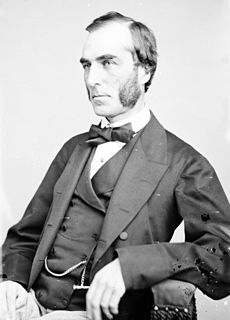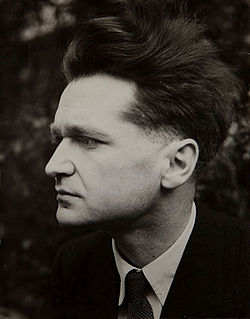A Quote by Goldwin Smith
The novelist must look on humanity without partiality or prejudice. His sympathy, like that of the historian, must be unbounded, and untainted by sect or party.
Related Quotes
A perfect historian must possess an imagination sufficiently powerful to make his narrative affecting and picturesque; yet he must control it so absolutely as to content himself with the materials which he finds, and to refrain from supplying deficiencies by additions of his own. He must be a profound and ingenious reasoner; yet he must possess sufficient self-command to abstain from casting his facts in the mould of his hypothesis.
A man's social and spiritual discipline must answer to his corporeal. He must lean on a friend who has a hard breast, as he wouldlie on a hard bed. He must drink cold water for his only beverage. So he must not hear sweetened and colored words, but pure and refreshing truths. He must daily bathe in truth cold as spring water, not warmed by the sympathy of friends.
A villain must be a thing of power, handled with delicacy and grace. He must be wicked enough to excite our aversion, strong enough to arouse our fear, human enough to awaken some transient gleam of sympathy. We must triumph in his downfall, yet not barbarously nor with contempt, and the close of his career must be in harmony with all its previous development.
You must be respectful and assenting, but without being servile and abject. You must be frank, but without indiscretion, and close, without being costive. You must keep up dignity of character, without the least pride of birth, or rank. You must be gay, within all the bounds of decency and respect; and grave, without the affectation of wisdom, which does not become the age of twenty. You must be essentially secret, without being dark and mysterious. You must be firm, and even bold, but with great seeming modesty.
The master-economist must possess a rare combination of gifts. He must reach a high standard in several different directions and must combine talents not often found together. He must be mathematician, historian, statesman, philosopher - in some degree. He must understand symbols and speak in words. He must contemplate the particular in terms of the general, and touch abstract and concrete in the same flight of thought. He must study the present in the light ofthe past for the purposes of the future
When an individual passes from one period of life to another a time comes when he cannot go on in senseless activity and excitement as before, but has to understand that although he has out-grown what before used to direct him, this does not mean that he must live without any reasonable guidance, but rather that he must formulate for himself an understanding of life corresponding to his age, and having elucidated it must be guided by it. And in the same way a similar time must come in the growth and development of humanity.
That this gentleman [President John Adams] ought not to be the object of the federal wish, is, with me, reduced to demonstration. His administration has already very materially disgraced and sunk the government. There are defects in his character which must inevitably continue to do this more and more. And if he is supported by the federal party, his party must in the issue fall with him.







































